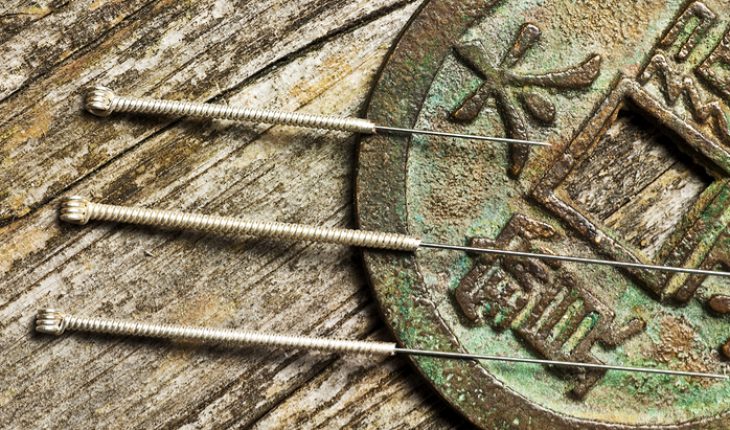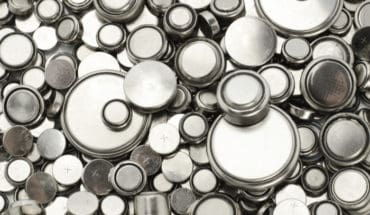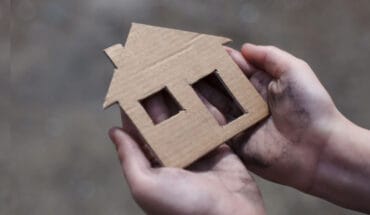Millions of people in Britain swear by the healing powers of acupuncture. According to the Royal Society of Medicine, around one million acupuncture treatments are given on the NHS and two million in the private sector each year. The alternative treatment, which involves sticking tiny needles into the skin, is usually used to relieve chronic pain, but it is also used to lift depression, ease nausea and even stop the irritating ring of tinnitus.
But does the ancient therapy actually work? Acupuncture, which is based on the principles of traditional Chinese medicine, has been gaining popularity in the UK, but still divides medical opinion. Doubters argue that acupuncture is simply a placebo, a bit like a sugar pill. In other words, patients feel better simply because they expect an improvement in their health.
Just to make things more confusing, scientific papers have reported the opposite results. According to one study published in the Journal of the American Medical Association, so-called “fake” acupuncture works just as well as the real thing when it comes to curing migraines. In another trial, researchers at the University of Southampton and University College London say that they have proved for the first time that the impact of acupuncture goes beyond the placebo effect. A study published in the journal Nature shows that the so-called “needle cure” can affect the way we process pain in the brain – and is just as effective as some prescription drugs.
“In my opinion, acupuncture should no longer be classed an alternative therapy,” says Dr George Lewith, head of the Complementary Medicine Research Unit at the University of Southampton. “The overwhelming evidence shows that it is more than just a placebo. In some cases, it can deliver results similar to conventional treatments.”
Studies show that acupuncture can ease the pain caused by osteoarthritis in the knee, back pain and neck pain, as well as depression.
In the Southampton University trial, patients with arthritis in their thumbs were given three different treatments in random order. Patients were either simply touched by blunt needles, or by a stage dagger type needle, that retracted when it touched the skin. Only a third of patients actually received acupuncture treatment when the needles were inserted into pressure points. The brains of all the patients were monitored during the treatment by sophisticated PET scanners. Only the real treatment triggered activity in the part of the brain which processes pain.
Patients who had acupuncture for neck pain reported a decrease in pain levels of more than 60 per cent, which is the same benefit expected from routine medicines. “Acupuncture can make a big difference to patients who are living with chronic pain,” says Dr Lewith. He says that the therapy should always be used after a conventional diagnosis has been made. “This is important so doctors know exactly what is being treated. Back pain, for instance, could be a sign of prostate cancer.”
Whether it works or not, acupuncture is extremely safe and has no serious side effects if used responsibly, although there have been cases where infection has been transmitted by dirty needles.
Acupuncture is not a panacea for everything. Current evidence suggests that it is unlikely to be much help to people who want to give up smoking or lose weight. Despite some optimistic claims, experts agree that it has no effect on problems such as baldness, erectile dysfunction or neural deafness. “Anyone who pays someone to cure their baldness with needles is going to be out of pocket and not a little disappointed,” says Dr Mike Cummings, medical director of the British Medical Acupuncture Society, with over 2600 medical members.
The jury is also still out on whether the needle cure can help to relieve the pain of migraine. Although the Journal of the American Medical Association seems to suggest it is no more effective than a placebo, many other studies do report positive benefits. Acupuncture is widely used to treat asthma, but there is no proof that it makes a real difference. In the case of nausea and vomiting, however, there does seem to be strong evidence that it works. In a trial of women who were undergoing chemotherapy for breast cancer, the women who received acupuncture felt less sick than those who received a placebo.
According to Oriental belief, acupuncture works by channelling a vital force of energy around the body. The Western view is more practical. “The best explanation for why it works is that the needles stimulate peripheral nerves in the tissue which then send impulses to the central nervous system. These impulses activate centres in the brain which change the way we perceive pain or discomfort,” says Dr Cummings, who trained as a GP.
He believes the acupuncture is slowly being accepted into the mainstream of healthcare. “I think acupuncture should be more widely available on the NHS, but only where it has been shown to have definite benefits.”
At the moment, acupuncture is only available on the NHS in areas where local primary care trusts decide to fund the service. A Department of Health spokeswoman says: “The government appreciates that many people find different complementary medicines such as acupuncture, helpful in alleviating symptoms of certain illnesses, especially those for which orthodox medicine does not seem to have a complete answer. As a result, some complementary medicine can be made available on the NHS is local NHS clinicians and commissioning organisations such as primary care trusts are convinced that it will be a clinical and cost effective use of resources.”
According to the British Acupuncture Council, the main regulatory body, around 10 per cent of GPs currently refer patients on to acupuncturists. Many more, however, would take the opportunity if the funds were there. Whether they go private or NHS, patients should always ensure that they are being treated by a registered practitioner. Most acupuncture sessions are provided by specialists without other medical qualifications but physiotherapists now learn the basic principles of acupuncture as part of their undergraduate training. Trained GPs, doctors and nurses can also carry out acupuncture. “Always ask to see someone’s qualification and check that they are a member of a recognised professional body,” says Dr Cummings. “Acupuncture is safe but it needs to be carried out by someone who knows what they are doing.”
- Christmas unrest – sleep solutions - 16th December 2024
- Machine learning for child vaccinations - 16th December 2024
- How to Have a Pet-Friendly Christmas - 16th December 2024






